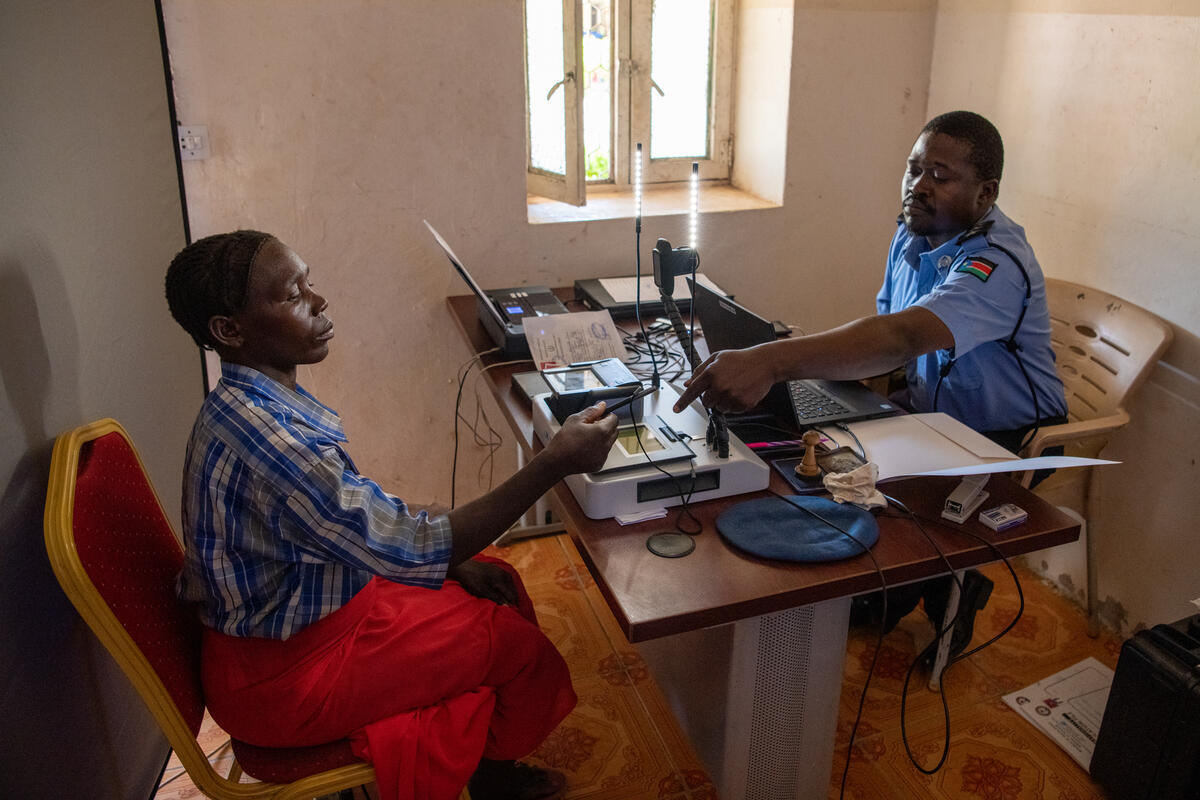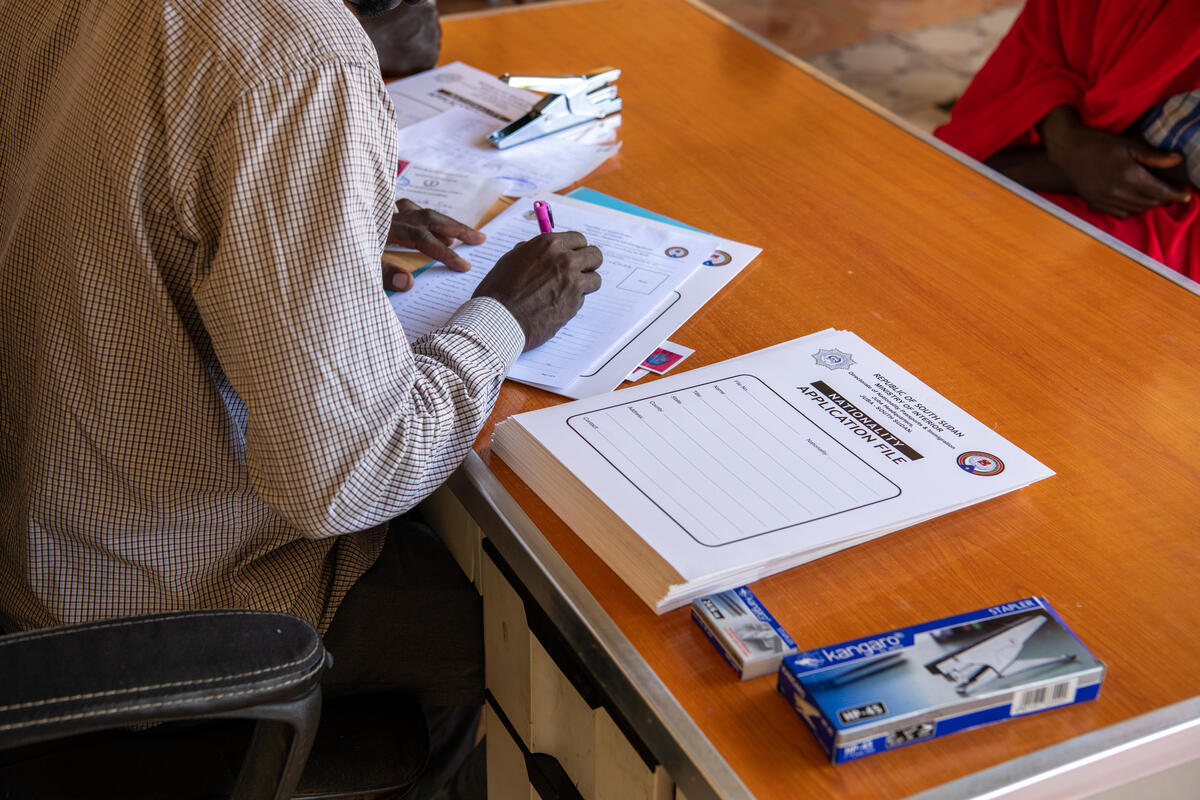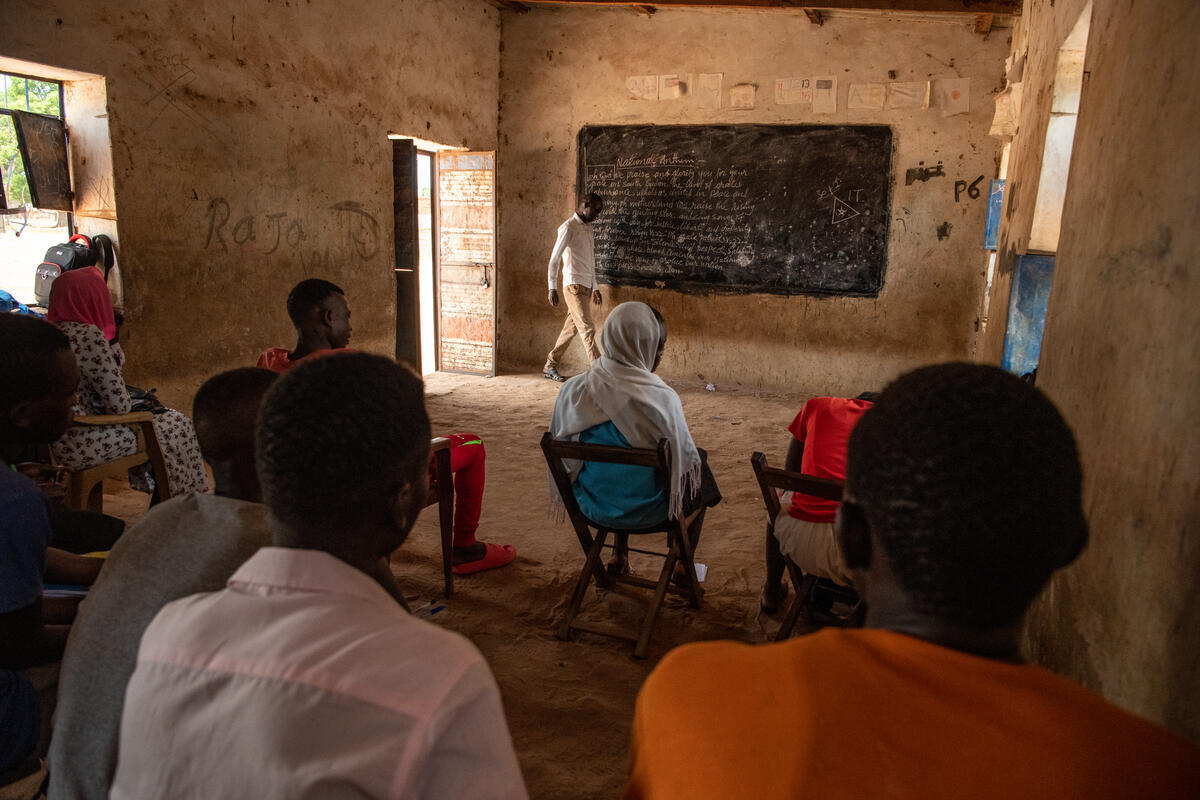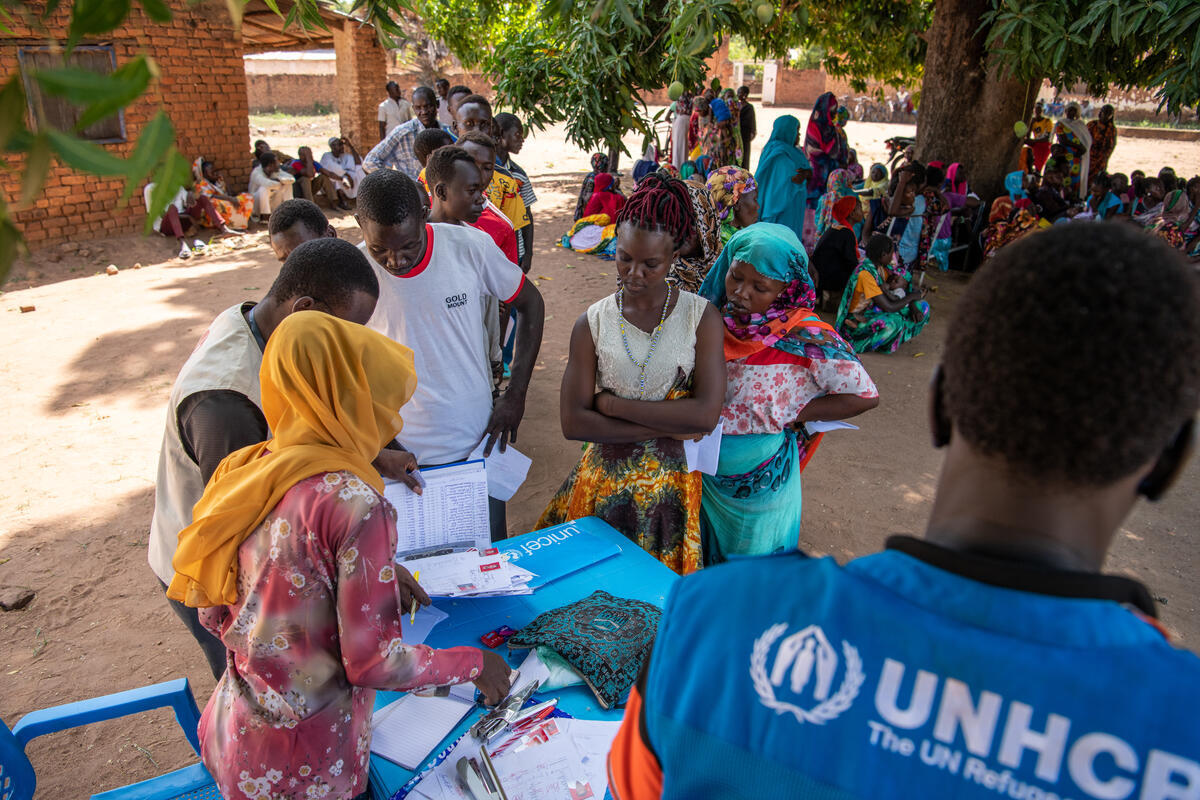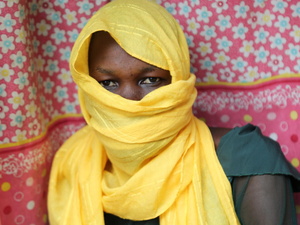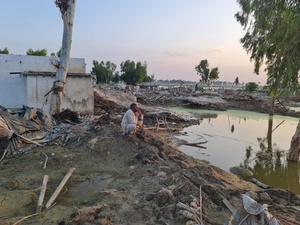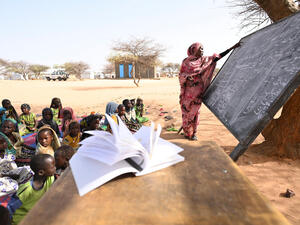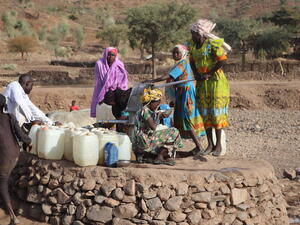Helping to secure a future, one National ID card at a time
Helping to secure a future, one National ID card at a time
Refugees returning to remote areas of South Sudan often struggle to get vital nationality documents. So UNHCR is taking the registration process to them.
Farmer Juma Alzen Sebil ran for his life when gunmen attacked his hometown in 2016, shooting residents, looting schools and homes and setting them ablaze.
Story by Tim Gaynor in Magwi, South Sudan
Photo © UNHCR/Tim Gaynor
He came home from Darfur, Sudan, in March as security returned to this remote town in western South Sudan, and is preparing to sow sorghum, simsim and groundnuts on his few acres, but he’s scared.
“Land is my entire life. It allows me to feed my children and provides me with an income … but without a national ID, I can’t prove I own it,” he says, sitting in the shade of a mango tree on the outskirts of Raja.
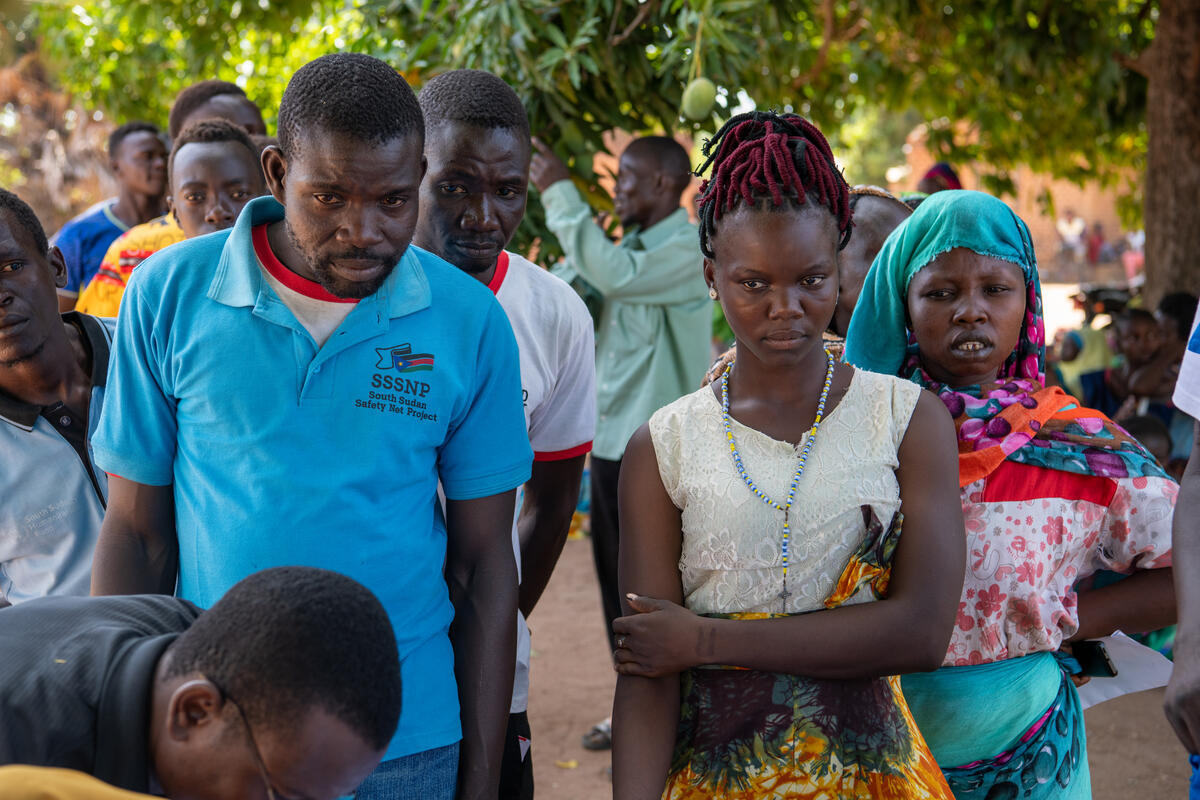
Hundreds of refugee returnees queue to apply for their nationality certificates in Raja, South Sudan.
“I imagine the challenges I am going to have passing it on to my children if my nationality is not clear. I am living just with worries.”
He is among thousands of refugees and internally displaced people coming home to Raja, a small town in Western Bahr el Ghazal state abutting Sudan, who are at risk of statelessness as they start over.
Without documents, they struggle to show they own their homes, or to secure much needed jobs in the formal economy as they rebuild, like widowed mother-of-six Mariata John Remigio. She fled violence in Raja for Kata, a village a few hours’ drive away in 2016, returning in March to find just the walls of her mud-built home standing.
“I was offered a job as a cleaner at the school. I applied, but I was denied it because I couldn’t provide national identity documents,” she says, close to tears.
“It would have allowed me to earn some money and put my children through the school where I was working.” Instead, she says, she is thrown back on subsistence farming that only feeds her family for part of the year.
Around 90 per cent of men, women and children in South Sudan do not possess National ID, and a significant number are at risk of statelessness, according to estimates by UNHCR, the UN Refugee Agency.
Born in Sudan before South Sudan’s independence, many had no means to get identity and nationality documents or did not realize how important they were. Many now struggle to prove their ties to South Sudan since it gained independence from Sudan in 2011.
In Raja, people with Islamic last names common across the border in Sudan often face additional scrutiny to prove their nationality. And for returnee Adam Ramadan Ahmad, 37, who was born in South Sudan, having his full civil rights recognized in the place of his birth is of particular importance.
“We have heard about the upcoming election in South Sudan (in 2023), but without a nationality I can’t vote and express my preferences for my country,” said the father of five, who returned home from North Darfur in 2020. “With nationality, I can.”
South Sudan is one of the poorest and most conflict impacted countries in Africa. It has some 2.3 million refugees scattered across five neighbouring countries, although some more than half-a-million refugees have spontaneously returned since 2018, many overland in hard-to-access areas.
Raja is eight hours drive over a bumpy dirt road from the state capital Wau, and three days by car from the capital Juba. Getting nationality documents – particularly in remote corners of the country – is burdensome and expensive.
In addition to the application forms, individuals must produce a birth certificate or an age assessment, as well as two photographs and a blood test, and pay around US$20 in addition to finding a credible witness who can attest to their origin.
Since 2013, UNHCR has been working with South Sudan’s Department of Civil Registry, Nationality, Passports and Immigration (DCRNPI) to issue National ID cards, with particular emphasis on taking registration efforts to distant areas where people are at greatest risk of statelessness. So far, some 15,000 people have benefited from this service.
In May, it dispatched a mobile registration team in all-terrain vehicles to Raja to take registration to the 2,000 returnees and internally displaced people that the DCRNPI determined are in danger of slipping through the cracks,
Staff brought generators to power up a photo printer, laptops and biometric iris and fingerprint scanners. And with NGO partner Hold the Child, they ensured that local chiefs and other trusted witnesses were on hand. On the first day, Juma, Mariata and Adam were among 182 people registered.
“Being able to prove that you legally belong to a country is key to a safe, dignified and sustainable return for the thousands of men, women and children coming home,” said Sarah Bisalputra, an associate statelessness officer with UNHCR in Juba. “ID cards allow people to go to school, secure work, move freely and take part in elections.”
UNHCR is committed to helping those who return voluntarily to South Sudan achieve a safe and dignified life through support for governance, peacebuilding and livelihoods in Raja County and other “pockets of hope” across the country.
Those registered in the drive can expect to receive National ID cards in coming weeks and start over with their rights fully restored. Meanwhile, others in the state who received documents on previous drives have already made strides toward reaching their goals, among them Musa Idris Ibrahim.
Returning to Wau last year after four years in exile in the Sudanese capital Khartoum as a refugee, the 21-year-old applied for and received his National ID card with UNHCR’s support.
He has since found work as a cashier at an upscale hotel in the town and has a place to study medicine at a university in Juba, hoping one day to become a surgeon.
“I don’t think that they have a lot of surgeons here … and I want to help my homeland, to help my community,” says Musa, on a break at the lodge where he works. Asked how he feels about the future, he says “very optimistic.”


